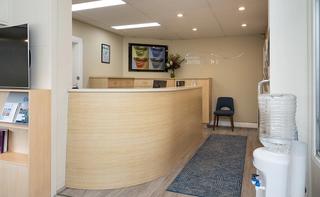Dental Care for Elderly: Why Is It Different?
Dental Care for Elderly: Why Is It Different?
Dental care for elderly is different because seniors have undergone gradual physiological changes and medical conditions that accompany aging.
For example, dry mouth is common among the elders because of decreased saliva production. Periodontitis (gum disease) might also be more common in seniors than young adults because of physiological changes and reactions to medications.
That’s why dentists take a different approach when examining and taking care of the teeth of the elderly. They consider various factors before initiating a dental procedure or treatment.
1. Sensitivity to anaesthetics
Many elderly patients are more sensitive now to local anaesthetics than before. The anaesthetics might result to adverse biochemical reactions that could endanger the patient’s life. That’s why dentists also look at the patient’s medical history before initiating a treatment.
Dentists also take great care in prescribing pain relievers or analgesics to seniors. Similar with the anaesthetics, analgesics might cause an adverse reaction inside the patient’s body. The next time you’re visiting a dentist, it’s recommended to ask about these potential issues.
2. Medical conditions such as diabetes and cancer
Aside from sensitivity to anaesthetics and analgesics, medical conditions such as diabetes, hypertension and cancer can make elderly dental care much more challenging and complicated. For example, diabetes might make healing the gums a huge concern after tooth extraction. Dentists also consider those medical conditions before extracting a tooth or performing another procedure.
Many medical conditions also result to medications. These medications may affect sensitivity of patients to dental treatment and anaesthetics. The medications could also be the things responsible for your oral problems. As a result, the dentist might also ask you about your medications to determine the root cause of your tooth decay, dry mouth, stained teeth and other issues.
3. Sensory and cognitive impairments
Some seniors might not be able to see and hear clearly. In addition, they might have already lost some of their comprehension abilities. This makes communication between the dentist and elderly patient challenging.
The dentist should still be able to explain the patient’s options regarding his or her dental health. It takes patience and clarity to get the point across. But with proper communication, the patient will be able to get optimal results.
Dental care for elderly Sydney
Here at Kissing Point Dental, we perform thorough dental examinations and consider all factors before initiating a procedure. We also explain the possible pros and cons of each procedure.
Contact us today and book a convenient appointment. We also accommodate emergency appointments (call us today at 02 9144 1746).


